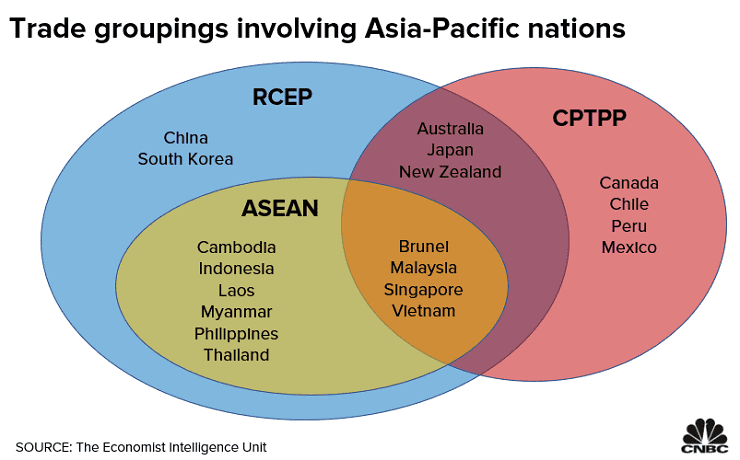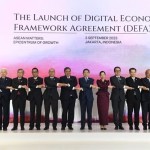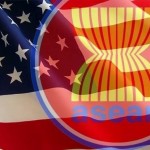Total number of posts 463.
KEY POINTS
- The Regional Comprehensive Economic Partnership or RCEP will come into force in January 2022.
- Australia and New Zealand were the latest to ratify the world’s largest trade agreement.
- Other countries that have ratified RCEP include Brunei, Cambodia, Laos, Singapore, Thailand, Vietnam, China and Japan, according to Australia’s Department of Foreign Affairs and Trade.

The world’s largest trade deal — which includes China and excludes the U.S. — will come into force in January next year.
It comes as Australia and New Zealand announced they have ratified the agreement.
The Regional Comprehensive Economic Partnership or RCEP was signed last year by 15 Asia-Pacific countries. The countries are the 10 members of the Association of Southeast Asian Nations and five of their largest trading partners China, Japan, South Korea, Australia and New Zealand.
Australia said in a statement on Tuesday that its ratification — together with New Zealand’s — paved the way for the deal to enter into force on January 1, 2022, and allowed RCEP to reach a “milestone.”
New Zealand confirmed its ratification in a separate statement on Wednesday.
RCEP will be in force 60 days after a minimum of six ASEAN members and three non-ASEAN signatories ratify the agreement.
ASEAN countries that have ratified the deal so far are Brunei, Cambodia, Laos, Singapore, Thailand and Vietnam, according to the website of Australia’s Department of Foreign Affairs and Trade. In addition to Australia and New Zealand, other countries outside ASEAN that have also ratified RCEP are China and Japan.
RCEP covers a market of 2.2 billion people and $26.2 trillion of global output. The partnership will create a trade grouping that covers about 30% of the world’s population, as well as the global economy.
It is also larger than other regional trading blocs such as the United States-Mexico-Canada Agreement (USMCA) and the European Union.
Analysts have said that economic benefits of RCEP are modest and would take years to materialize.
Still, the deal was widely seen as a geopolitical victory for China at a time when U.S. economic influence in Asia-Pacific has waned.
Source: CNBC














